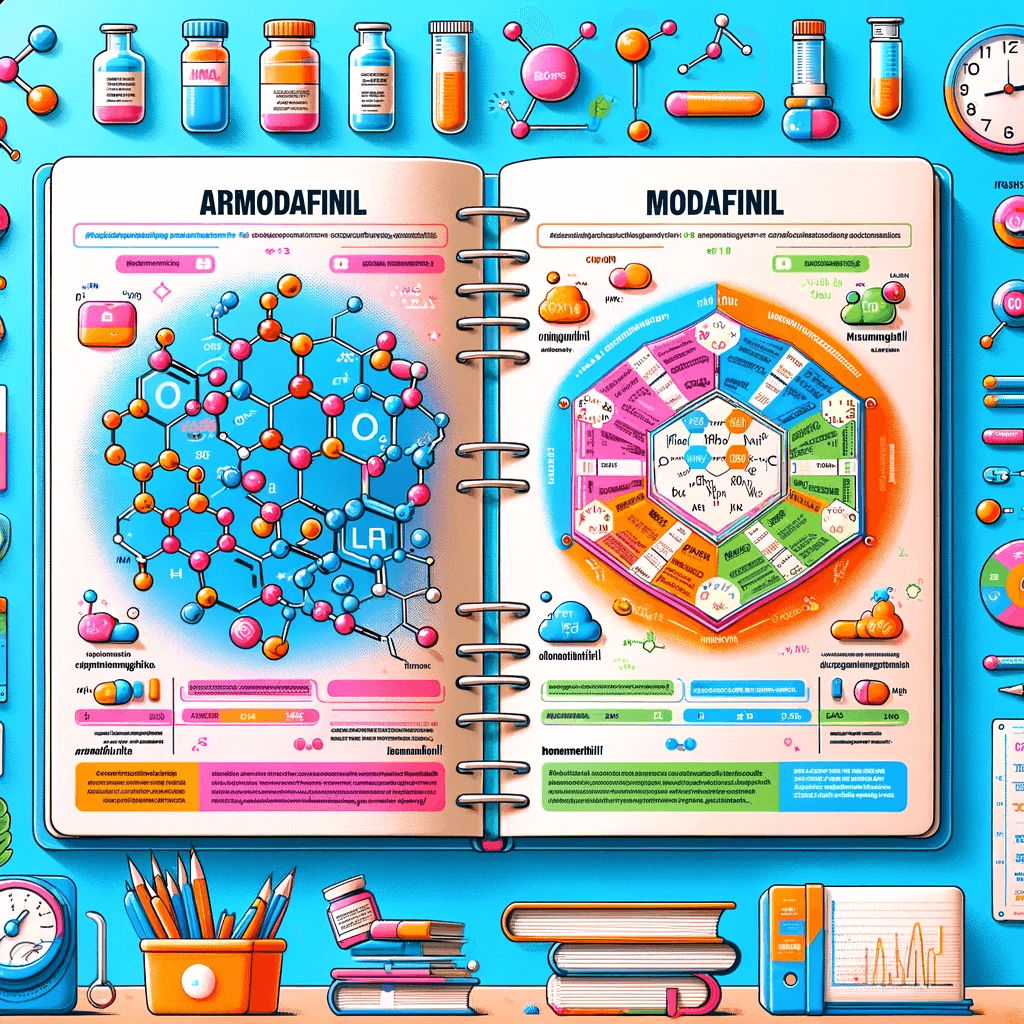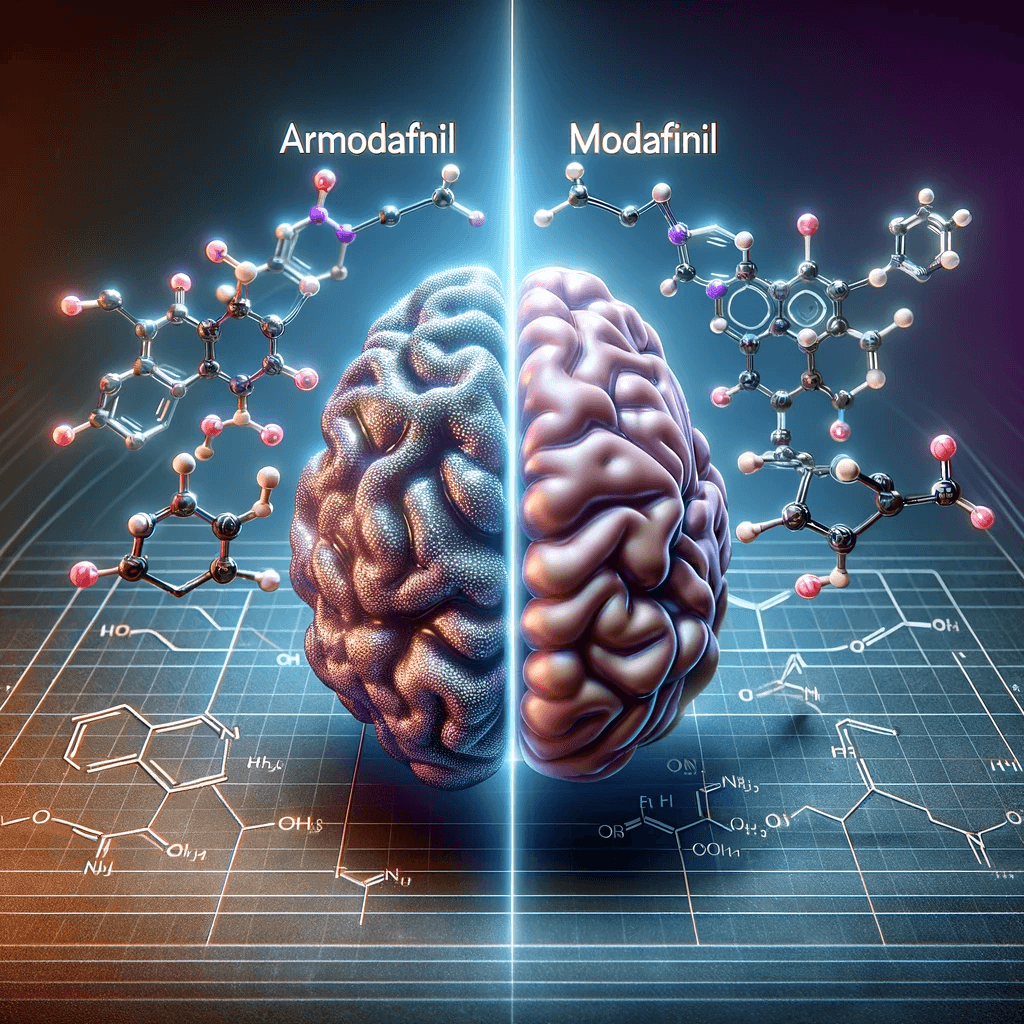
Introduction
Welcome to a journey into the world of armodafinil and modafinil, two remarkable wakefulness-promoting medications. They’ve gained popularity not just in medical circles but also among students for cognitive enhancement. This guide aims to provide an insightful and comprehensive understanding of these medications, tailored for high school students.
Understanding Wakefulness-Promoting Medications
Wakefulness is more than just being awake; it’s a complex process regulated by our brain. Key players in this process are neurotransmitters like dopamine and norepinephrine, which keep us alert and focused. Armodafinil and modafinil work by increasing the levels of these neurotransmitters, thus promoting wakefulness and alertness.
The Role of Neurotransmitters
- Dopamine: Influences motivation, pleasure, and attention.
- Norepinephrine: Affects how we respond to stress and anxiety.
Armodafinil: A Closer Look
Armodafinil, the next-generation stimulant, stands out with its longer half-life, meaning it stays in the body longer than modafinil. This property leads to sustained release and prolonged effects. It’s approved for managing conditions like narcolepsy, shift work sleep disorder, and excessive daytime sleepiness. Its prolonged effect is particularly beneficial for those who need extended wakefulness. Explore more about Armodafinil here.
Pharmacokinetic Profile of Armodafinil
- Longer Half-Life: Ensures extended effectiveness.
- Sustained Release: Provides steady medication levels for better control of symptoms.
Modafinil: The Precursor
Modafinil, the forerunner in wakefulness-promotion, was approved in 1998. Although it has a shorter half-life compared to armodafinil, it’s known for its effectiveness in treating narcolepsy, shift work sleep disorder, and excessive daytime sleepiness. The choice between modafinil and armodafinil often depends on individual needs and medical advice. Discover the details of Modafinil here.
Pharmacokinetic Profile of Modafinil
- Rapid Onset: Acts quickly to promote wakefulness.
- Shorter Half-Life: Requires more frequent dosing.
Head-to-Head Comparison: Armodafinil vs Modafinil
| Feature | Armodafinil | Modafinil |
|---|---|---|
| Dosage | Varies | Varies |
| Onset of Action | Gradual | Quick |
| Duration of Action | Longer (up to 15 hours) | Shorter (up to 12 hours) |
| Side Effects | Nausea, Headache, Dizziness | Headache, Nausea, Nervousness |
| Drug Interactions | Less frequent | More common |
This table provides a clear comparison, highlighting the differences in duration of action, side effects, and drug interactions.

Considerations for Off-Label Use
While these medications have approved medical uses, their off-label use for cognitive enhancement and academic performance has sparked debate. Here are some key points to consider:
- Potential Benefits: Enhanced focus, increased alertness, and improved cognitive functions.
- Potential Risks: Dependency, side effects, and unknown long-term impacts.
- Consultation Is Key: Always seek medical advice before using these medications off-label.
Conclusion
Armodafinil and modafinil, while similar in their goals, have distinct characteristics. It’s crucial to understand these differences and approach their use with informed caution, especially in a non-medical context like academic performance enhancement.
Remember: Informed decisions and medical advice are the cornerstones of using any medication, especially for cognitive enhancement.
For a deeper dive into health and wellness topics, visit Cybermodafinil, your ultimate destination for comprehensive health and wellness information.


